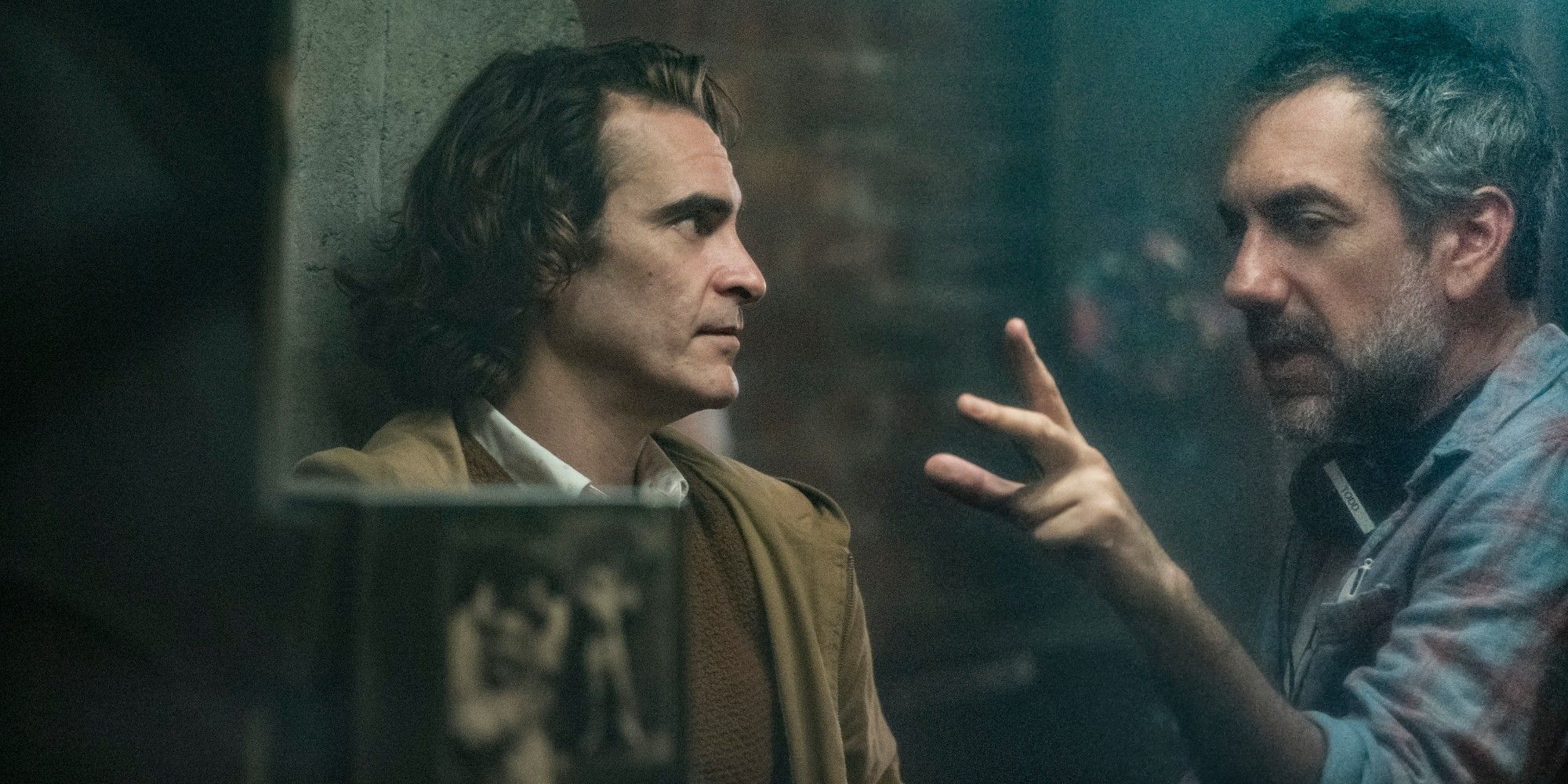Joker director Todd Phillips has responded to the backlash regarding the film’s use of violence. Batman’s iconic nemesis debuted in 1940. Despite originally intended to be a one-off villain, editorial intervention allowed the character to survive and continually endure throughout the decades. As such, the character has been adapted multiple times across a variety of mediums. Though most notably voiced by Mark Hamill in animation and video games, he’s been played to critical acclaim on the big screen by both Jack Nicholson in Tim Burton’s Batman and Heath Ledger in The Dark Knight. The latter even went on to win a posthumous Oscar for his performance. He was most recently played, to lesser success, by Jared Leto in 2016’s Suicide Squad.
Click the button below to start this article in quick view.
Phillips’ film, however, is set offer a brand-new origin story for the Clown Prince of Crime. Set in 1981 Gotham City, the film will have no ties whatsoever to any of the DCEU movies of the last decade or even those confirmed as on the way. Equally, Joker won’t adhere directly to any comic book storylines. Played by Joaquin Phoenix, Joker will follow a struggling comedian named Arthur Fleck. After a lifetime of being abused and downtrodden, Fleck will find himself developing a new persona and spiraling into madness. Fans’ initial skepticism regarding the premise has been largely put to rest by the trailers. Despite that, there has remained a wave of concern that the film’s themes will serve as a rallying cry to a certain sub-section of people and provoke similar acts in real life.
In an interview with Associated Press, Phillips was asked directly whether he understood at least why people might be a little scared going into it. Phillips answered by reflecting on the 2012 atrocity that took place in Aurora Colorado – which saw a man commit a mass shooting at a movie theater during a screening of The Dark Knight Rises. As well as questioning whether that was something that could fairly be blamed on the movie, he pointed out the infamous misrepresentation of the assailant adopting a Joker-esque appearance. Phillips then went on to compare Joker to other violence-themed movies that are often overlooked. Check out his full statement below:
“I think that Aurora is obviously a horrible, horrible situation but even that is not something you blame on the movie. Quite frankly, if you do your own research about Aurora, that gentleman wasn’t even going in as The Joker. That was misreported. His hair was dyed red and he was having, obviously, a mental breakdown. There’s something horrifying about that but it wasn’t related to it outside of the fact that it happened as a movie theater. This is not the thing that the movie is trying to represent. The movie still takes place in a fictional world. It can have real-world implications, opinions, but it’s a fictional character in a fictional world that’s been around for 80 years. The one that bugs me more is the toxic white male thing when you go, ‘Oh, I just saw John Wick 3‘. He’s a white male who kills 300 people and everybody’s laughing and hooting and hollering. Why does this movie get held to different standards? It honestly doesn’t make sense to me.”
Phillips’ thoughts come in the wake of Warner Bros’ own official statement on the issue. Phoenix himself even walked out of an interview over similar questions. With the Aurora movie theater refusing to screen the movie and even members of the United States military warned against potential outbursts of violence, it very remains very much a topic at the center of public consciousness, whether fairly so or otherwise. In terms of over movies, Rambo: Last Blood recently even released a promo mocking violence critics. And while John Wick 3 only features 164 kills, that’s still a lot of carnage. As such, it’s understandable why Phillips chose that particular movie to make his correlation.
Arguably, however, the difference between the John Wick franchise and Joker is that the former went for an otherworldly, almost comic-book approach to its action whereas the latter has opted for a more real-world approach to its fictional city. Also, Keanu Reeves’ character tends to limit his violence to fellow assassins. Then again, most of the character’s actions in Joker will likely be nothing he hasn’t done before on the page or in other adaptations. The idea of connecting movies and video games to real-life acts of violence, though, is nothing new. Such films as Scream even quotably tackled this concept directly. Equally, such debates will likely continue to rage endlessly in the future. As such, people will have their own views on the subject and whether entertainment rather than just mental illness provokes real world violence. And they’ll be able to judge for themselves on which side of the fence they will sit when Joker finally hits theaters.
Source: Associated Press
- Joker (2019) release date: Oct 04, 2019
- Birds of Prey (And the Fantabulous Emancipation of One Harley Quinn) (2020) release date: Feb 07, 2020
- Wonder Woman 1984 (2020) release date: Jun 05, 2020
- The Batman (2021) release date: Jun 25, 2021
- The Suicide Squad (2021) release date: Aug 06, 2021
- DC Super Pets (2022) release date: May 20, 2022
- Aquaman 2 (2022) release date: Dec 16, 2022
